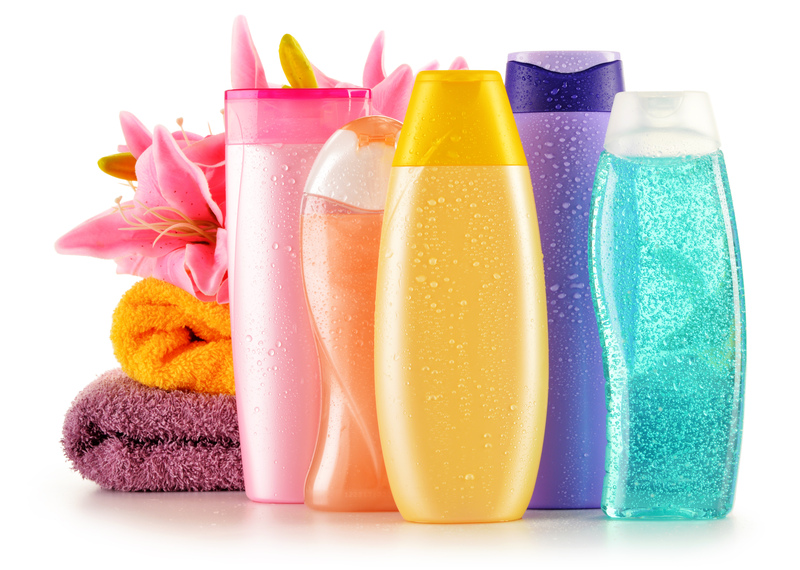Top Tips for Removing Musty Odors from Your Home
Posted on 23/08/2025
Top Tips for Removing Musty Odors from Your Home
Is your home plagued by musty odors that just won't go away? These unpleasant smells can make even the most beautiful space feel uninviting and uncomfortable. Whether you're struggling with mildew smell after a rainy season or combating the lingering scent in a basement, tackling musty odors quickly is essential for both comfort and health. In this comprehensive guide, we'll share the most effective tips for eliminating musty odors from your house, ensuring your living spaces smell fresh and inviting all year round.

Understanding Musty Smells: Causes and Concerns
Before diving into solutions, it's important to understand what causes that musty scent. These odors are most often the result of:
- Dampness: Moisture is a primary culprit, whether from leaks, high humidity, or condensation.
- Mold and mildew: These fungi thrive in wet, poorly ventilated areas - think basements, bathrooms, and attics.
- Lack of air circulation: Stagnant air can trap odors, letting them settle into fabrics and materials within your home.
Persistent musty smells aren't just unpleasant -- they can be signs of a bigger problem. Excess moisture and mold can cause allergic reactions and exacerbate respiratory issues. Removing musty odors, therefore, isn't just about making your home smell better; it's also about creating a healthier environment for you and your family.
How to Remove Musty Odor From the House: The Step-by-Step Approach
1. Locate the Source of the Musty Odor
The first step in eliminating a musty odor is always identifying the root cause. Begin by checking areas where moisture is likely to accumulate:
- Under sinks and around plumbing fixtures
- Basements and crawl spaces
- Bathrooms, especially behind toilets and around shower stalls
- Attics and storage rooms
- Near windows and doors with poor seals
Look for visible mold, dampness on walls or floors, water stains, and condensation buildup. Sometimes, the culprit could be water-damaged furniture, books, or stored fabric items. Addressing the source of the moisture is crucial before any deodorizing can be truly effective.
2. Dry Out Your Home
Moisture is the enemy of a fresh-smelling home. Take action to dry out damp areas:
- Open windows and doors to improve ventilation
- Use fans to speed up air circulation
- Place dehumidifiers in humid rooms, especially basements and bathrooms
- Fix leaks in pipes, roofs, or windows immediately
- Use moisture-absorbing products like silica gel or activated charcoal in trouble spots
Tip: If your home often suffers from excess humidity, consider investing in a whole-home dehumidifier system to maintain optimal levels.
3. Deep Clean Surfaces and Fabrics
Musty odors love to cling to soft furnishings, carpets, and porous materials. To completely remove musty odors from your house:
- Wash curtains, upholstery, and pillows: Use hot water where possible, and dry everything thoroughly outside in the sun for a natural deodorizing effect.
- Shampoo rugs and carpets: Hire a carpet cleaner or rent one to deep clean carpets, paying special attention to any area that may have gotten wet.
- Wipe hard surfaces: Clean walls, floors, shelves, and cabinets with a mixture of white vinegar and water -- this natural solution helps kill odor-causing bacteria and mildew.
- Clean closets and storage spaces: Remove items from closets and storage spaces, wipe down all surfaces, and air them out thoroughly.
4. Remove and Prevent Mold Growth
Mold is a major cause of musty odors and can spread quickly if not eradicated. Here's how to remove musty smells from mold:
- Scrub visible mold: Wear gloves and a mask, and use a mixture of 1 cup bleach to 1 gallon of water to scrub hard surfaces. Never mix bleach with ammonia or other cleaners.
- For porous surfaces: If items like gypsum board, insulation, or ceiling tiles are moldy, it may be best to replace them entirely.
- Apply mold inhibitors: Consider treating problem areas with a commercial mold inhibitor once they are clean and dry.
Note: If mold covers a large area (more than 10 square feet), consult a professional for safe remediation.
5. Boost Ventilation and Airflow
Good airflow is key to banishing musty odors. To improve air quality:
- Install exhaust fans: Make sure bathrooms, kitchens, and laundry rooms have working exhaust fans.
- Move furniture away from walls: Allow air to circulate freely.
- Use ceiling or oscillating fans: These can help keep air moving in unused rooms as well.
- Open windows when weather permits: Let in fresh air to flush out stuffy indoor air.
Natural Solutions to Banish Musty Smells from Your Home
Use Baking Soda for Odor Absorption
Baking soda is a safe, non-toxic odor absorber. To get rid of musty odors:
- Sprinkle baking soda liberally on carpets and let sit for 12-24 hours, then vacuum thoroughly.
- Place open bowls or boxes of baking soda in closets, cabinets, and other confined spaces to passively absorb smells.
- Add baking soda to laundry to help remove musty smell from towels, clothes, and linens.
White Vinegar: The Natural Deodorizer
Vinegar's acetic acid naturally neutralizes bad odors. Tips for using vinegar:
- Add one cup of white vinegar to the rinse cycle when washing musty fabrics.
- Set out bowls of vinegar in musty-smelling rooms for a few hours (remove pets while doing this).
- Use a spray bottle of diluted vinegar (one part vinegar to three parts water) to wipe down mold-prone surfaces.
Activated Charcoal, Coffee Grounds, and More
- Activated charcoal: Place bags or bowls of charcoal in closets, refrigerators, and musty rooms. It absorbs odors without adding fragrance.
- Coffee grounds: Dried coffee grounds in an open container can absorb odors and impart a pleasant aroma.
- Essential oils: Use natural scents like lavender, tea tree, or eucalyptus in a diffuser once odors are under control.
How to Prevent Musty Odors from Returning
Regular Cleaning Is Essential
Routine cleaning is the best way to prevent musty odors in the house. Weekly dusting, vacuuming, and wiping down surfaces prevents dust and mold from accumulating. Don't forget to clean often-overlooked places:
- Under beds and furniture
- Behind appliances
- Inside closets and storage bins
Keep Humidity Levels in Check
High humidity breeds musty smells. Aim to maintain indoor humidity between 30 and 50 percent. You can check this with a simple hygrometer, available at most home stores. If your environment is consistently humid:
- Run dehumidifiers in problem areas
- Fix leaks and clear gutters regularly
- Use moisture barriers in basements and crawl spaces
Store Items Properly
Improper storage can lead to musty, moldy-smelling belongings. Here's how to keep items fresh:
- Store off-season clothing and linens in airtight, moisture-resistant containers
- Use silica gel packets or moisture absorbers in closet corners and boxes
- Avoid storing cardboard boxes directly on concrete floors
- Regularly air out closets, drawers, and storage spaces
Mind Your HVAC System
Your home's air conditioning and heating systems play an important role in air quality.
- Replace HVAC filters every 1-3 months
- Have ducts professionally cleaned every few years
- Ensure your HVAC system is sized properly to prevent moisture buildup
When to Call a Professional
While most musty odors can be tackled with a DIY approach, there are times when you should call in the experts. Consider professional help if:
- The source of moisture cannot be found
- Mold growth covers a large area or keeps returning despite your best efforts
- The musty odor persists after thorough cleaning and odor removal attempts
- You notice significant water damage or structural issues, such as sagging ceilings or warped floors
Expert water damage restoration and mold remediation specialists have the tools and expertise to find hidden mold and fix underlying moisture issues safely.

Frequently Asked Questions About Removing Musty Odors
Why does my house smell musty no matter what I do?
Persistent musty odors usually mean there is still hidden moisture or mold somewhere in your home. Thoroughly inspect all areas, including rarely used rooms, behind walls, under floors, and inside HVAC systems. Don't forget about foundation or roof leaks, which can cause dampness to seep in unnoticed.
Are musty smells dangerous?
While occasional musty smells are usually harmless, chronic exposure to mold can lead to health issues such as allergies or respiratory problems. Infants, elderly people, and those with compromised immune systems are most at risk.
Do air fresheners remove musty odors?
No -- air fresheners only mask odors. To truly eliminate musty smells, you must find and resolve the source of the moisture or mold, clean thoroughly, and use odor absorbers.
How long does it take to get rid of musty odors?
Depending on the severity, it may take from a single deep cleaning session to several days of treatment, especially if drying, washing, and deodorizing are needed for multiple parts of the home.
Final Thoughts: Enjoy a Fresh, Inviting Home
Getting rid of musty odors in your house is a matter of addressing moisture issues, deep cleaning, improving airflow, and taking preventive measures. Regular cleaning and vigilance are the best ways to keep your home smelling clean and welcoming. Try the methods outlined above, and you'll soon breathe easier in a fresher, healthier environment. Remember, a musty odor is your home's way of telling you that it's time for a little TLC!
- Act fast when you notice musty smells
- Use natural odor removers like baking soda and vinegar
- Keep humidity under control year-round
- Don't be afraid to seek professional help if the smell persists
Say goodbye to musty house smells and hello to a clean, comfortable living space!




